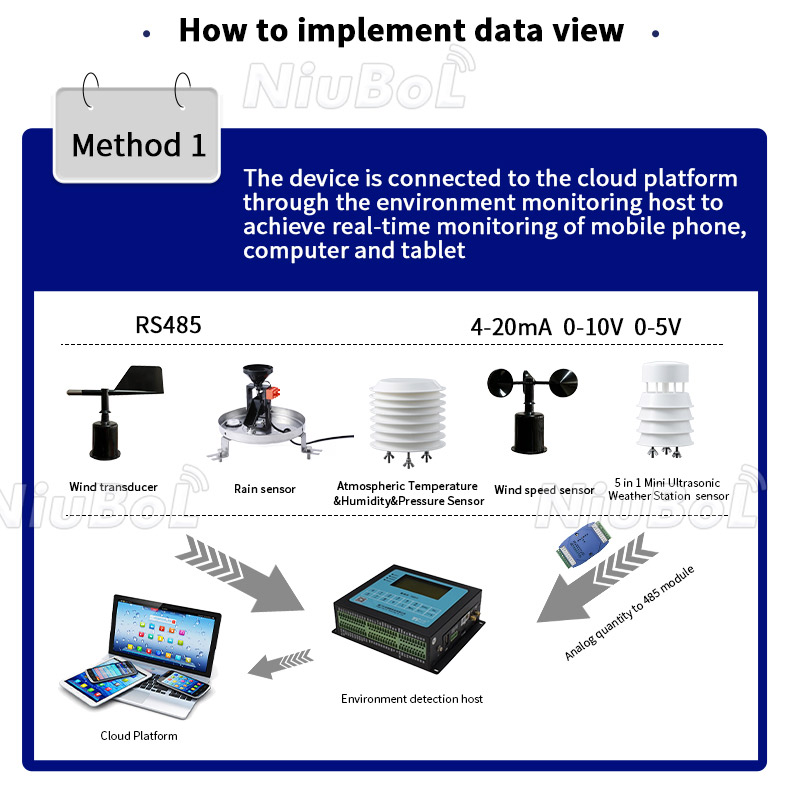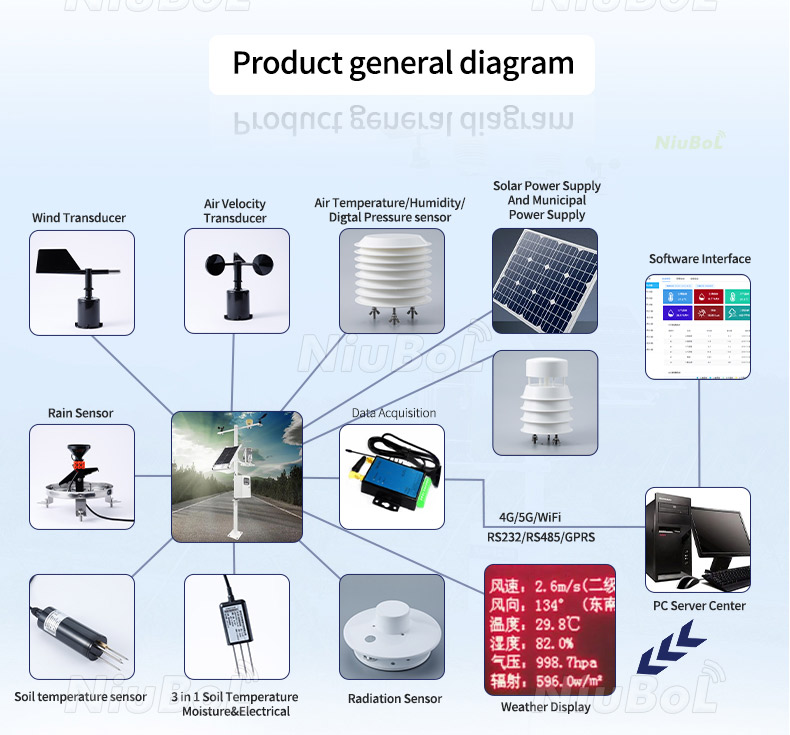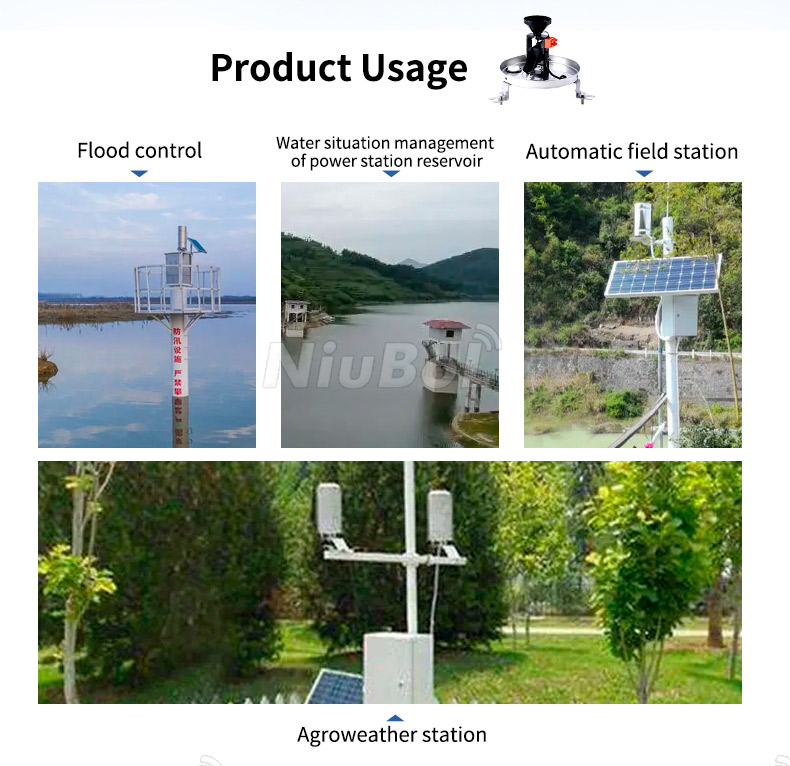

— Blogs —
—Products—
 Consumer hotline +8618073152920
Consumer hotline +8618073152920 WhatsApp:+8615367865107
Address:Room 102, District D, Houhu Industrial Park, Yuelu District, Changsha City, Hunan Province, China
Product knowledge
Time:2023-09-02 12:11:06 Popularity:2527
Meteorological instruments can be classified into various types and the following are some of the common types:
Thermometers: instruments used to measure the temperature of the atmosphere. Common types of thermometers are ordinary thermometers, maximum and minimum thermometers, electronic thermometers, etc.
Anemometer: An instrument used to measure the speed and direction of the wind. Common anemometers are anemometer, wind vane, etc.
Hygrometer: an instrument used to measure the humidity moisture content of the air. Common hygrometers are dry and wet bulb thermometers, electronic hygrometers, etc.
Atmospheric manometer: instrument used to measure atmospheric pressure. Common atmospheric manometers are mercury barometer, barometric pressure sensor.

Heliometer: used to measure solar radiation and sunlight intensity of the instrument. Common sunshine meter has sunshine meter, solar radiometer and so on.
Precipitation meter: instrument used to measure precipitation. Common precipitation gauges are rain gauge, snow depth gauge, etc.
Radiometer: instrument used to measure the radiation energy on the ground or in the atmosphere. Common radiometers include global radiometers, ultraviolet radiometers, and others.

By collecting and measuring different meteorological parameters, these instruments can provide critical meteorological data for weather forecasting, climate studies and various applications. As technology continues to advance, meteorological instruments are being updated and developed to provide more accurate and convenient means of data collection and transmission.
Meteorological instruments can be categorised into the following types according to industry applications:
1. Meteorological forecasting and meteorological observation: These include meteorological instruments used by national meteorological services, meteorological research institutes and meteorological forecasting departments. For example, meteorological radar, satellite receiving equipment, weather observation towers, etc.
2. Agrometeorological stations: meteorological instruments used in agriculture, mainly for meteorological monitoring and forecasting of crop growth, irrigation, pest control, etc. For example, soil moisture detectors, greenhouse environment monitoring instruments, etc.
3. Energy weather station: meteorological instruments used in the energy industry, mainly used for meteorological monitoring and prediction in the development and utilisation of renewable energy sources such as solar energy and wind energy. For example, solar radiometer, wind speed and direction meter, etc.

4. Aerospace meteorological stations: meteorological instruments used in the aerospace field, mainly used for meteorological monitoring and prediction in aircraft take-off and landing, meteorological forecasting and air traffic management. For example, the meteorological radar on the aircraft, air weather detector, etc.
5. Marine meteorological stations: meteorological instruments used in the field of oceanography, mainly used for meteorological monitoring and prediction in the fields of marine meteorological observation, marine forecasting and marine resources development. For example, buoy observation system, tide gauge station, etc.
6. Meteorological Station for Construction Engineering: Meteorological instruments used in the field of construction engineering, mainly for meteorological environment assessment and safety risk prediction in the process of building design and construction. For example, building anemometers, icing detectors, etc.
Meteorological instruments for different industries will have different designs and functions according to their specific needs and application scenarios. These meteorological instruments can provide accurate meteorological data to help various industries in decision-making and planning, as well as to ensure the safety and sustainable development of the relevant fields.
Related recommendations
Sensors & Weather Stations Catalog
Agriculture Sensors and Weather Stations Catalog-NiuBoL.pdf
Weather Stations Catalog-NiuBoL.pdf
Related products
 Combined air temperature and relative humidity sensor
Combined air temperature and relative humidity sensor Soil Moisture Temperature sensor for irrigation
Soil Moisture Temperature sensor for irrigation Soil pH sensor RS485 soil Testing instrument soil ph meter for agriculture
Soil pH sensor RS485 soil Testing instrument soil ph meter for agriculture Wind Speed sensor Output Modbus/RS485/Analog/0-5V/4-20mA
Wind Speed sensor Output Modbus/RS485/Analog/0-5V/4-20mA Tipping bucket rain gauge for weather monitoring auto rainfall sensor RS485/Outdoor/stainless steel
Tipping bucket rain gauge for weather monitoring auto rainfall sensor RS485/Outdoor/stainless steel Pyranometer Solar Radiation Sensor 4-20mA/RS485
Pyranometer Solar Radiation Sensor 4-20mA/RS485
Screenshot, WhatsApp to identify the QR code
WhatsApp number:+8615367865107
(Click on WhatsApp to copy and add friends)
